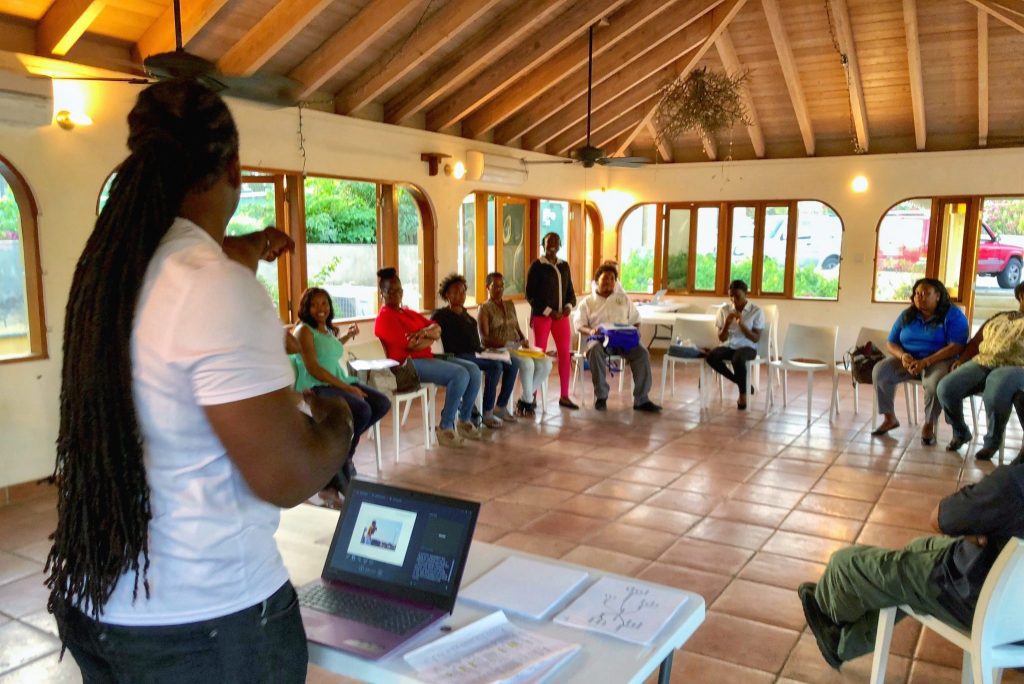Skift Take
Training the next generation of luxury hotel employees may require more than the old-fashioned schooling that's been in place for decades.
 Travel's most forward-thinking insiders will gather September 18–19 for our annual Skift Global Forum in New York. In just a few years, Skift's Forums — the largest creative business gatherings in the global travel industry — have become what media, speakers, and attendees have called the “TED Talks of travel.”
Travel's most forward-thinking insiders will gather September 18–19 for our annual Skift Global Forum in New York. In just a few years, Skift's Forums — the largest creative business gatherings in the global travel industry — have become what media, speakers, and attendees have called the “TED Talks of travel.”
Skift Global Forum 2019 will take place at Jazz at Lincoln Center’s Frederick P. Rose Hall in New York. This year's Forum speakers include CEOs and top executives from Booking Holdings, Delta Air Lines, Expedia, Air France-KLM, Marriott International, Amtrak, and many more.
Luxury hospitality education is ready for an overhaul, according to Harsha Chanrai, CEO of Saira Hospitality. The three-year-old nonprofit creates pop-up schools to educate underserved local community members for employment in the industry, so far in Mexico and the British Virgin Islands, with Namibia coming up this fall.
“There’s a big gap between hospitality education and hospitality operation,” said Chanrai. Her goal is to turn the old model on its head: Instead of teaching broad concepts from a distance, she wants to hone in on specific skills that a particular brand like Bunkhouse Group needs from its staff. Teachers with real-world experience are key, as opposed to “pure teachers who have never really stepped foot into a lifestyle or luxury hotel.”
While the excitement of luxury hospitality may be strong for many students, the struggle is helping them attend class consistently when they have serious socioeconomic challenges in their daily lives. Reducing the program’s 18 percent attrition rate and making sure women have an equal opportunity to benefit are high priorities.
Chanrai will speak at Skift Global Forum on September 18–19 in New York.
Skift Editor’s Note: This interview has been edited for clarity and length.
Skift: Tell me about the gap in hospitality education that you were looking to fill.
Harsha Chanrai: In education, the typical systems will offer you employment at the end of your degree, right? We take classes and study and then look for a job. What I think should be changing, and what we’re trying to challenge, is the idea that you have your job and then you take the relevant classes and courses for that particular employment. Speaking broadly on education, one of the things we do is line up the jobs, line up the employers, and then give students the skills they need for that particular role and for that particular brand.
In hospitality education, especially in the markets that we’re working in, it’s an old-fashioned industry. I believe that [schools] are not necessarily looking for the skills that hospitality operators and managers are looking for. Especially in community colleges, they can be quite by-the-book, and I don’t know that they’re refreshing their content on a daily basis or even a weekly basis like we are. I don’t think they’re speaking necessarily to the people on the ground. I think there is a big gap between hospitality education and hospitality operation.
I think it’s important that our teachers, trainers, and content directors have all worked in hospitality. So as a result, they understand the needs and they’ve lived and breathed the needs. So they can therefore speak to them much more directly than pure teachers who have never really stepped foot into a lifestyle or luxury hotel.
Skift: Why target luxury properties? Is that the most rigorous preparation?
Chanrai: It’s luxury hotels meeting the highest standards, but also I feel that we’re getting people excited about the industry. We’re challenging mindset that hospitality isn’t for them, or hospitality is just a means to an end.
These students have been brought up, let’s say, in the British Virgin Islands, but no one’s ever been to Necker, no one’s ever been to Scrub or Rosewood. You don’t just show them the marble and the chandeliers and the fine dining, which we do, but you show them the back of house and you show them realistically where are they going to be working. So luxury hospitality, to me, is that gateway to increasing their enthusiasm about an industry that they would have otherwise potentially disregarded.
Skift: As far as your curriculum, what’s the toughest part about it for students?
Chanrai: It’s not the content. I think sometimes when you’re teaching them about the cost of turnover, and they have to compute it themselves, we’re going to lose some people who aren’t familiar with the math, but that’s not the point. The point is that they realize that it’s a huge cost to the hotel, and it’s okay if they don’t get the exact figure. We make sure it’s not the management stuff we were taught at Cornell, it’s the applicable management stuff we were taught at Cornell. Whatever is key for them to understand.
I think the most challenging part for them is to keep coming when they don’t have roofs on their houses, or floods are happening, when their personal circumstances are so dire.
Generally we have about an 18 percent attrition once we accept them into the program until graduation. It’s not because of [lack of] desire, quite often there will be personal circumstances that are really quite horrific. We’ve had trainers and project managers even speak to parents and try to get them to understand why this is important. All of a sudden their parents will say, “It’s more important that you come and work with us here.” So we have to convince the parents before we convince the student sometimes.
Join Us at Skift Global Forum!
The gender gap is something that we also address. I’m excited that we typically have a much larger percentage [of women], anywhere from 70–80 percent in the last project were female. I think it really speaks to the women in the community, who often don’t get as much of a shot in terms of employment.
Skift: Is there a particular part of the world that you’d like to expand to next?
Chanrai: We’re expanding to Namibia on September 23. We’re partnering with Habitas, which is a brand that I feel has a lot of alignment in terms of their values and their footprint. Namibia, most interestingly for us, has the largest gap between the rich and the poor, and the largest socioeconomic divide. So here is somewhere I feel we can really make true impact.
We ask for a small deposit, but in this case, the Cornell module that we offer isn’t even an option, which is typically $150 per student. We have to think logistically. How are they going to get to the classes? Will they have to stay over? I think we’ll have to supply food. I think it’s a very underserved community that we’re going to be working with, and as a result it’s more interesting and exciting for us.
The other area that I’m excited to get into is the U.S. It’s New York, it’s Los Angeles, it’s the cities that we live in where every day you have to walk past homeless people on the street. I really want to give back to the city that I live in and the cities I visit frequently. I think we are finally breaking the U.S. market.
Come See Saira CEO Harsha Chanrai Speak at Skift Global Forum Sept. 18–19 in NYC. Get Tickets Now
Have a confidential tip for Skift? Get in touch
Tags: education, Saira, sgf2019, skift global forum
Photo credit: A Saira Hospitality pop-up in the British Virgin Islands included a variety of courses on luxury hospitality skills. Saira Hospitality
